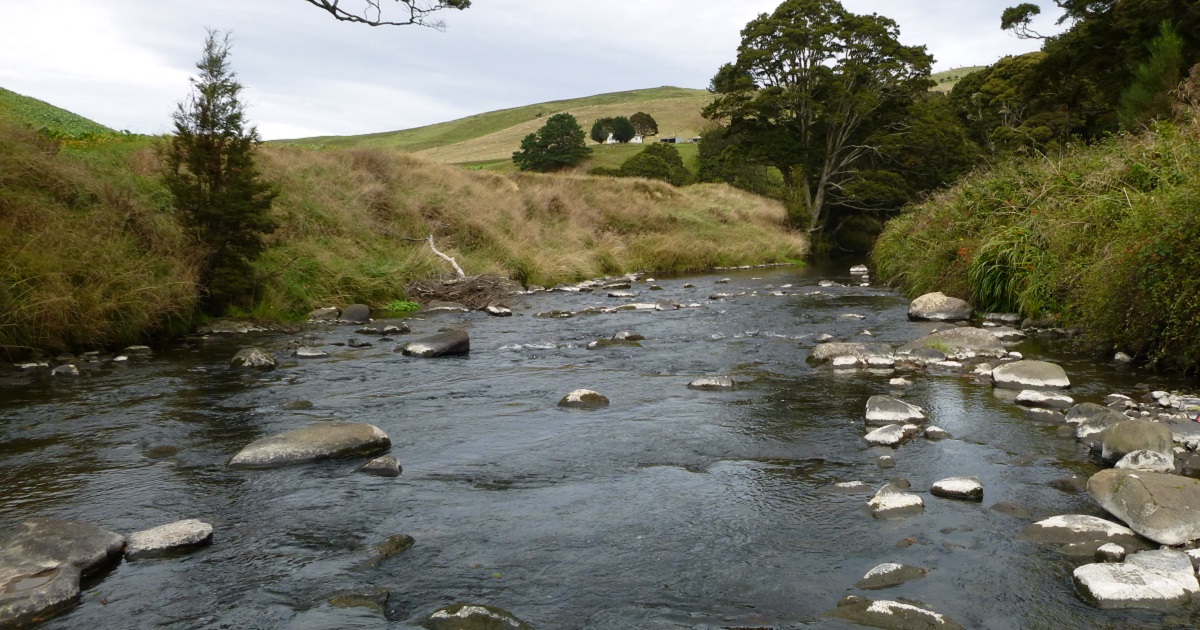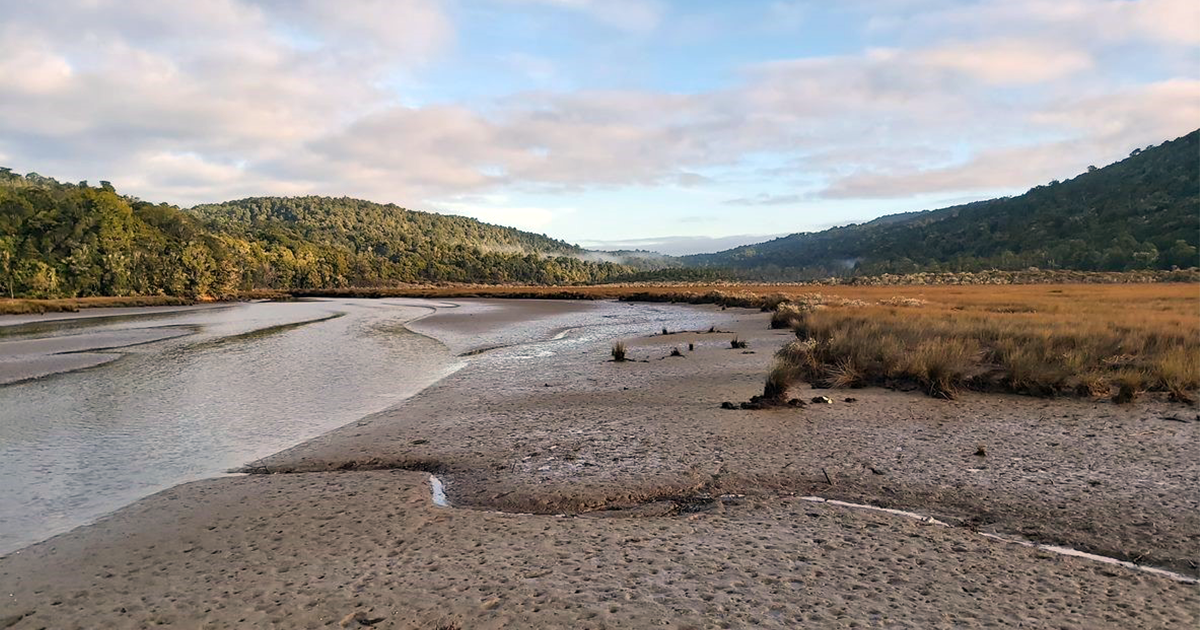The Otago Regional Council is committed to protecting and enhancing the natural environment of Otago.
Increasingly, this is focused on facilitating and empowering communities within a catchment to plan how to manage and restore it.
This integrated catchment management approach focuses on community, iwi and stakeholder values and practical action to have a positive impact on the environment.
Our role is to help plan, implement and then monitor actions to achieve shared goals.


The Catlins
The Catlins Catchment Action Plan Governance Group is supported by Otago Regional Council to put their Catchment Action Plan into action. This covers the Otago area of The Catlins and its coastal waters.

Upper Lakes
The Upper Lakes Integrated Catchment Group has been supported by the Otago Regional Council to create a Catchment Action Plan for the Upper Lakes area. The Group will shortly be putting their plan into action.

Taiari / Taieri
The Taiari / Taieri Integrated Catchment Group will be supported by the Otago Regional Council to create a Catchment Action Plan for the Taiari area and its coastal waters.
Changes in the way we think about ecosystems has seen national and local government take a more focussed and coordinated approach to ‘on the ground’ environmental stewardship with the local community and mana whenua.
The approach called Integrated Catchment Management (ICM), is based on a holistic, natural resource management philosophy that recognises that all the elements of an ecosystem, including the people, are connected.
The ICM programme comes from ORC’s Long-Term Plan (2021-2031), enabling ORC to facilitate the development, implementation, and review of integrated Catchment [Action] Plans in collaboration with iwi and community.
Managing natural resources on a catchment scale looks at the ecosystem from the mountains or headwaters of the catchment down to the sea. This aligns with the concept in Te Ao Māori of ki uta ki tai.
For example, rather than focusing on just wetland conservation, ICM recognises that a wetland is affected by the surrounding land and the waters that flow into it. Hence, the ICM approach looks at management from an integrated perspective.
How is the Integrated Catchment Management (ICM) Programme different from work that the ORC has done before?
The focus of the Integrated Catchment Management programme is active management. We hope the ICM programme will be a catalyst that focuses community, iwi and stakeholder action on projects that have a positive impact on the environment. Our role is to work with communities, iwi, and stakeholders to identify the things they value in their place and then to identify what puts pressure on these values. We then help plan, implement and monitor actions that manage these pressures or restore the value most effectively. None of this is new, but it is a focussed and coordinated approach.
A CAP is a plan for the management and conservation of an entire catchment or catchments. It is a long-term plan that builds on the work that communities and local government are already doing to protect and manage their place and serves as a focus for new actions and projects.
Although the catchment, or watershed, is used to frame a CAP, it is not focused on just freshwater. A CAP looks at the whole system: biodiversity, water (fresh and salty), land, and the ecosystem services they provide as well as human wellbeing values (including mahika kai, wāhi tupuna and livelihoods).
The CAP can refer to regulatory (or mandatory) rules that may need to be taken to achieve environmental outcomes required by regional plans, but it will not be creating 'rules'.
Successful CAPs are 'owned' by the community, iwi and the ORC. This means they are developed with the community. ORC, key stakeholders, and subject experts will be working with communities and iwi to co-design these detailed catchment action plans for their area.
No. The CAPs are not prescribed by regulation, nor are they making any rules. However, they will be consistent with legislation and regulatory planning instruments such as the proposed Land and Water Regional Plan (LWRP). For example, the LWRP will include environmental outcomes for freshwater values and some actions within a CAP will help contribute to achieving these outcomes.
In addition, we are not planning on starting from scratch. The development of each CAP begins with a stocktake of the environmental work that is already happening in the area. The stocktake highlights the activities that the wider community are already putting into caring for their place but will also show us where or whether there are gaps and opportunities for further collaboration. ORC’s role is co-ordinating the collaborative development of the CAPs with the wider community, providing data and information to inform the development, and developing systems to support the implementation and tracking the progress of the CAPs.
It is important that CAPs are 'owned' by iwi, the community and ORC. This means they need to be developed in partnership. We will be trialling a method of environmental planning called 'Conservation Standards' (CS). CS is an internationally recognised set of principles and practices that outlines a co-design process where a community takes part in facilitated workshops and collaboratively set goals for the catchment and design actions that achieve those goals.
We are not intending to draft another document that sits on a shelf. The CAP will be accessible online in a format that outlines the long-term goals, shows the current situation, ranks the pressures, and explains what we aim to do about them. This format also enables us to track progress in achieving the actions and adapt if we are off track.
Following the public’s endorsement of the ICM programme in the 2021-31 Long-Term Plan, ORC is undertaking a programme in the Catlins where we are partnering with iwi and the community to co-develop a Catchment Action Plan. In 2024, we will begin a programme in the Upper Lakes Rohe, if you want to know more, please email us at icm@orc.govt.nz.
The ORC has received funding from the Ministry for the Environment (MfE) to provide a staff member to support catchment group initiatives to deliver the Essential Freshwater reforms. Our Catchment Group Planner works alongside established catchment groups to develop integrated catchment management plans at the catchment scale, and to coordinate support and information for groups within ORC.
Our Catchment Group Action Plans are:
- Owned by the catchment group and supported by ORC.
- Designed to build on the great work already undertaken by catchment groups.
- Provided in a series of 3 to 5 funded workshops, including a venue and kai.
- Delivered in a consistent way with the Integrated Catchment Management program.
- Incorporated with our Integrated Catchment Management program as this is rolled out in the region.
- Supported with ongoing updates, analysis and GIS.
- Connected with Otago Catchment Community, who provide organisational support, collaboration and facilitation for catchment groups.
If your catchment group would like to establish a Catchment Action Plan, or renew an existing plan, please get in touch with us by emailing icm@orc.govt.nz or phone 0800 474 082 and ask to speak to the Catchment Group Planner.
Email the ICM team icm@orc.govt.nz or phone 0800 474 082





